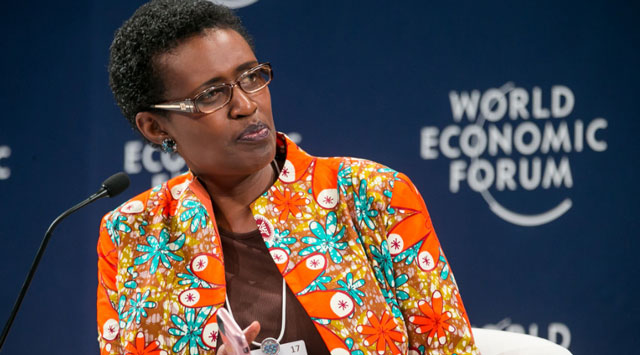
INEQUALITY: Unless it is confronted, social cohesion and democracy itself will come under growing threat
COMMENT | Kaushik Basu | At the end of a low and dishonest year, reminiscent of the “low, dishonest decade” about which W.H. Auden wrote in his poem “September 1, 1939,” the world’s “clever hopes” are giving way to recognition that many severe problems must be tackled. And, among the severest, with the gravest long-term and even existential implications, is economic inequality.
The alarming level of economic inequality globally has been well documented by prominent economists, including Thomas Piketty, François Bourguignon, Branko Milanović, and Joseph E. Stiglitz, and well-known institutions, including OXFAM and the World Bank. And it is obvious even from a casual stroll through the streets of New York, New Delhi, Beijing, or Berlin.
Voices on the right often claim that this inequality is not only justifiable, but also appropriate: wealth is a just reward for hard work, while poverty is an earned punishment for laziness. This is a myth. The reality is that the poor, more often than not, must work extremely hard, often in difficult conditions, just to survive.
Moreover, if a wealthy person does have a particularly strong work ethic, it is likely attributable not just to their genetic predisposition, but also to their upbringing, including whatever privileges, values, and opportunities their background may have afforded them. So there is no real moral argument for outsize wealth amid widespread poverty.
This is not to say that there is no justification for any amount of inequality. After all, inequality can reflect differences in preferences: some people might consider the pursuit of material wealth more worthwhile than others. Moreover, differential rewards do indeed create incentives for people to learn, work, and innovate, activities that promote overall growth and advance poverty reduction.
But, at a certain point, inequality becomes so severe that it has the opposite effect. And we are far beyond that point.
Plenty of people – including many of the world’s wealthy – recognise how unacceptable severe inequality is, both morally and economically. But if the rich speak out against it, they are often shut down and labeled hypocrites. Apparently, the desire to lessen inequality can be considered credible or genuine only by first sacrificing one’s own wealth.
The truth, of course, is that the decision not to renounce, unilaterally, one’s wealth does not discredit a preference for a more equitable society. To label a wealthy critic of extreme inequality as a hypocrite amounts to an ad hominem attack and a logical fallacy, intended to silence those whose voices could make a difference.
Fortunately, this tactic seems to be losing some of its potency. It is heartening to see wealthy individuals defying these attacks, not only by openly acknowledging the economic and social damage caused by extreme inequality, but also by criticising a system that, despite enabling them to prosper, has left too many without opportunities.
In particular, some wealthy Americans are condemning the recent tax legislation pushed by Congressional Republicans and President Donald Trump’s administration, which offers outsize cuts to the highest earners – people like them. As Jack Bogle, the founder of Vanguard Group and a certain beneficiary of the proposed cuts, put it, the plan – which is all but guaranteed to exacerbate inequality – is a “moral abomination.”
Yet recognising the flaws in current structures is just the beginning. The greater challenge is to create a viable blueprint for an equitable society. (It is the absence of such a blueprint that has led so many well-meaning movements in history to end in failure.) In this case, the focus must be on expanding profit-sharing arrangements, without stifling or centralising market incentives that are crucial to drive growth.
A first step would be to give all of a country’s residents the right to a certain share of the economy’s profits. This idea has been advanced in various forms by Marty Weitzman, Hillel Steiner, Richard Freeman, and, recently in November, Matt Bruenig. But it is particularly vital today, as the share of wages in national income declines, and the share of profits and rents rises – a trend that technological progress is accelerating.
There is another dimension to profit-sharing that has received little attention, related to monopolies and competition. With modern digital technology, the returns to scale are so large that it no longer makes sense to demand that, say, 1,000 firms produce versions of the same good, each meeting one-thousandth of total demand.
A more efficient approach would have 1,000 firms each creating one part of that good. So, when it comes to automobiles, for example, one firm would produce all of the gears, another producing all of the brake pads, and so on.
Traditional antitrust and pro-competition legislation – which began in 1890 with the Sherman Act in the US – prevents such an efficient system from taking hold. But a monopoly of production need not mean a monopoly of income, as long as the shares in each company are widely held. It is thus time for a radical change, one that replaces traditional anti-monopoly laws with legislation mandating a wider dispersal of shareholding within each company.
These ideas are largely untested, so much work would need to be done before they could be made operational. But as the world lurches from one crisis to another, and inequality continues to deepen, we do not have the luxury of sticking to the status quo. Unless we confront the inequality challenge head on, social cohesion and democracy itself will come under growing threat.
****
Kaushik Basu, former Chief Economist of the World Bank, is Professor of Economics at Cornell University and Nonresident Senior Fellow at the Brookings Institution.
Copyright: Project Syndicate, 2017.
 The Independent Uganda: You get the Truth we Pay the Price
The Independent Uganda: You get the Truth we Pay the Price



